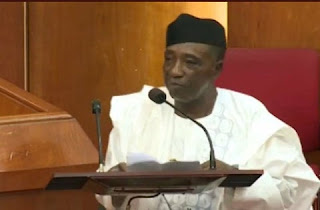FG to inject $10 billion into economy, create five million jobs through agric revolution programme
…To revive 6 motor plants for 50,000 tractors assembling in 6 geopolitical zones
… 632 mech centres to back 774 LGAs production centres, 142 agro-processing centres in Sen districts
…To empower 35 million Nigerians, engage 100,000 extension workers
By Soni Daniel
The Federal Government on Thursday rolled out details of its ambitious agricultural programme, which it is undertaking with $1.2 billion loan support from Brazil, saying the project would inject $10 billion into the economy, create five million new jobs and empower no fewer than 35 million Nigerians nutritionally and economically.
Additionally, the take-off of the programme would entail the reactivation of six motor assembly plants in the six geopolitical zones of the country for assembling tractors and other implements and the importation of Completely Knocked Down (CKD) parts of about 5,000 tractors and numerous implements (for local assembly) annually for a period of 10 years.
Overall, the federal government estimates that the programme would train an engage no fewer than 100,000 agricultural extension workers and eventually transfer the Brazilian technology to Nigeria.
At the same time, the package also involves the establishment of 142 agro-processing service centres for value addition, with one centre in each of the 109 senatorial districts in Nigeria as well as the establishment of 632 mechanization service centres to support primary production in the 774 Local Government Areas and the Federal Capital Territory.
Ministers of Information, Alhaji Lai Mohammed and his Agriculture counterpart, Alhaji Sabo Nanono, unveiled the details of the agricultural programme at a joint press conference at the National Press Centre in Abuja.
The information Minister said: “This programme will create 774 service centres nationwide to mechanize our farming methods and process or add value to farm produce locally, leading to efficiency and eliminating post-harvest losses, thereby cutting down cost of food all year round
Additionally, private sector operators will operate and manage all the service centres and the assembly plants and it will create about 5 million jobs and inject over US$10 billion into the economy within 10 years.
Mohammed boasted that the new agricultural project, which is ambitiously codenamed “The Green Imperative”, would revolutionalize agriculture in Nigeria within the ten year period that it is expected to be implemented.
“The stage is now set for an agricultural revolution that will strengthen food security, create massive jobs, transfer technology, revive or reinvigorate many assembly plants, strengthen the economy, save scarce resources, mechanize farming and lead to the emergence of value-added agriculture, among other benefits,” Mohammed boasted..
The Minister of Agriculture and Rural Development, Alhaji Sabo Nanono, explained that unlike other agricultural programmes in the past, which failed, the present administration would ensure the success of the Green Imperative, which he said, would be private sector-driven and devoid of any form of political interference.
Nanono said that the project had become imperative to enable Nigeria to mechanically cultivate more of its vast arable land, which has been under cultivated with only 34 million hectares yearly yielding between 1.2 to 1.6 tonnes per hectare but which can be significantly improved with mechanisation as is the case in neighbouring African countries.
“We have enough land, water and inputs to produce more food for Nigeria but we need to mechanise the process in order to get more yield and output with the aid of machines as our neighbours are dong,” Nanono said.
The programme, which is worth $1.2 billion, is to be implemented over a period of 5-10 years with funding from the Development Bank of Brazil (BNDES) and Deutsche Bank; with insurance provided by Brazilian Guarantees and Fund Managements Agency (ABGF) and the Islamic Corporation for Insurance of Export Credit (ICIEC) of the Islamic Development Bank (IsDB), and coordinated by Getúlio Vargas Foundation (FGV).
It is the outcome of a Nigeria-Brazil Bilateral Agriculture Development Programme dating back to 6 June 2016 aimed at enrolling Brazil’s Government-to-Government More Food International Programme (MFIP), which has already resulted in several high level Ministerial and technical visits and exchanges have between the two countries and the signing of the Bilateral Protocol of Intention with the Government of Brazil in March 2017.
As part of the effort to get the project off the table, Nigeria’s the Vice President Yemi Osinbajo, formally launched The Green Imperative programme on 17 January 2019 in the presence of the representatives of the Federative Republic of Brazil, Deutsche Bank as well as Brazilian and Nigerian private sector


Comments
Post a Comment